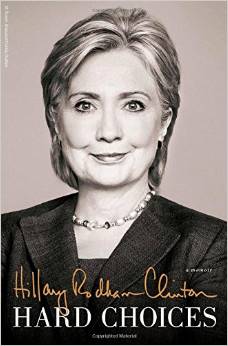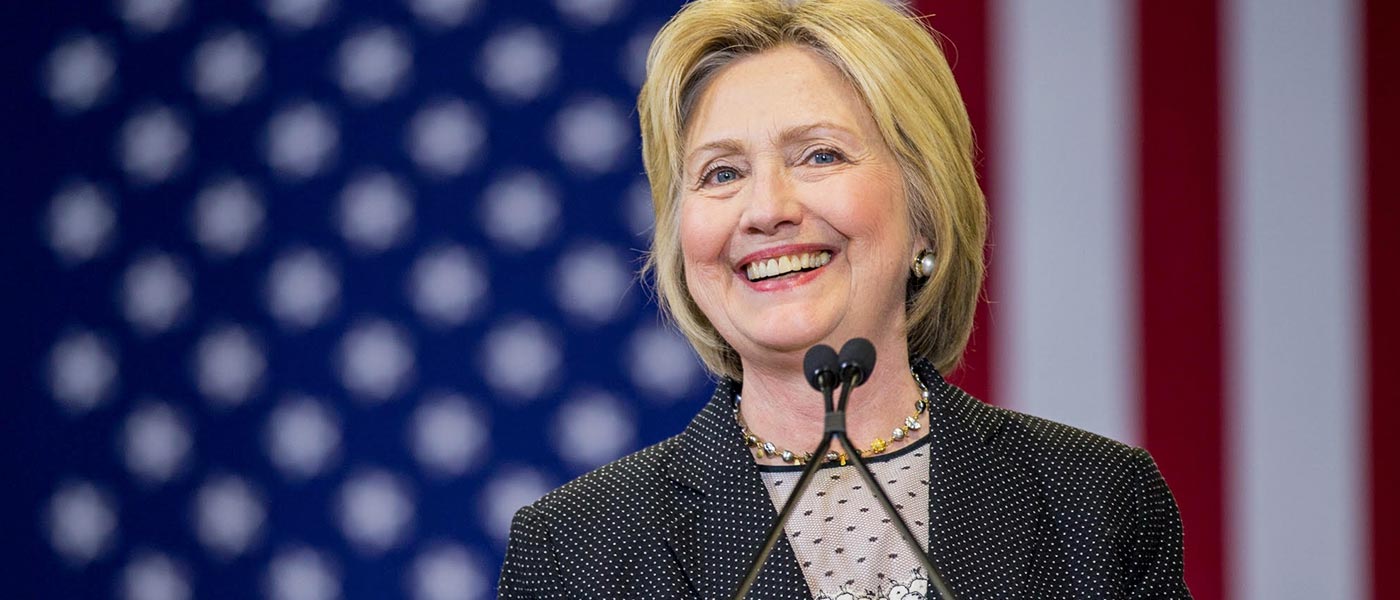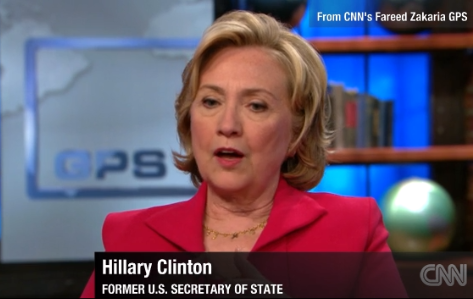BBG Watch Commentary
 With the 2016 Democratic National Convention (July 25-28) getting underway Monday to nominate the former First Lady, former U.S. Senator and former Secretary of State Hillary Clinton as the Democratic Party’s presidential candidate in the November elections, BBG Watch is re-posting our article from July 2014 which summarizes her rather extensive views, at least as far as presidential candidates go, on the Broadcasting Board of Governors (BBG) and the Voice of America (VOA). Her potential victory in November could be bad news for the BBG’s current Board and BBG’s upper management.
With the 2016 Democratic National Convention (July 25-28) getting underway Monday to nominate the former First Lady, former U.S. Senator and former Secretary of State Hillary Clinton as the Democratic Party’s presidential candidate in the November elections, BBG Watch is re-posting our article from July 2014 which summarizes her rather extensive views, at least as far as presidential candidates go, on the Broadcasting Board of Governors (BBG) and the Voice of America (VOA). Her potential victory in November could be bad news for the BBG’s current Board and BBG’s upper management.
The Republican presidential candidate Donald Trump, on the other hand, has been predictably silent on VOA and BBG. But judging from his proclaimed admiration for Russia’s President Vladimir Putin and his questioning of U.S. commitments to NATO countries, these statements do not bode well at all for the agency’s future mission and agency employees should he be the one to win the U.S. presidency.
BBG Chairman Jeff Shell, members of the BBG Board, agency executives and VOA managers have, however, even more reason to worry if Mrs. Clinton should become the next U.S. president. This is especially true in light of her 2013 remark before a congressional committee as then Secretary of State and a member of the BBG Board that the Broadcasting Board of Governors is “practically defunct.”
While Hillary Clinton’s electoral victory might be good for reviving the agency’s mission, considering her earlier comments about Kremlin and ISIS propaganda, she is not likely to look kindly on the BBG Chairman Jeff Shell trying to do private business in Putin’s Russia.
Mrs. Clinton said in 2013: “Our Broadcasting Board of Governors is practically defunct in terms of its capacity to be able to tell a message around the world. So we’re abdicating the ideological arena, and we need to get back into it. We have the best values. We have the best narrative.” Being herself criticized by Donald Trump for allegedly mixing private and government business, she is not likely to give her political opponents any more ammunition by tolerating such behavior in even minor officials in her administration should she win in November.
 Businessman Donald Trump, on the other hand, might have cheered Mr. Shell doing private company business in Russia and mixing it with government business. He has indicated that this would be his modus operandi if he is elected president.
Businessman Donald Trump, on the other hand, might have cheered Mr. Shell doing private company business in Russia and mixing it with government business. He has indicated that this would be his modus operandi if he is elected president.
Being a former government official in her role as Secretary of State, Mrs. Clinton is also not likely to look kindly on the Broadcasting Board of Governors Chairman being accommodated in his private business travel plans, which were ultimately interrupted by his entirely predictable expulsion from Russia, by BBG CEO John Lansing.
Mr. Lansing has no prior government service, public diplomacy or foreign policy experience, and is being assisted by hapless senior advisors whom he had failed to replace.
Mr. Shell also has no prior U.S. government service, public diplomacy or foreign policy experience.
Having worked in the State Department, Mrs. Clinton is not likely to tolerate bad judgement that hinges upon U.S. foreign policy. Mr. Shell and Mr. Lansing made their plans to schedule their ill-advised travel to Russia shortly before Secretary Kerry’s important talks in the Kremlin. Speaking on background, influential congressional staffers have renewed their calls for legislation to abolish the BBG Board after they had learned about the troubling circumstances of Mr. Shell’s and Mr. Lansing’s trip to Moscow.
The U.S. State Department and the White House were also clearly not pleased with Mr. Shell and Mr. Lansing, but BBG officials have been able so far to confuse most media with their misleading and deceptive statements, some of which are worthy of the Kremlin’s propaganda machine in their obscuring of material facts and critical information. This includes not disclosing the double private business/government business purpose of Mr. Shell’s travel to Moscow, his use of his personal instead of his diplomatic passport, or the fact that while he was expelled from Russia, Mr. Lansing, IBB deputy director Jeff Trimble, and Radio Free Europe/Radio Liberty (RFE/RL) president Tom Kent were not. If Hillary Clinton were still Secretary of State, she or some other State Department official would probably have a lot to say to the BBG about this kind of government press release.
Whether one politically agrees with Mrs. Clinton or not, it is fair to say that as a former public servant who had been highly critical of the agency before, she is not likely to be deceived by the BBG bureaucracy. She may try to rebuild the agency, while Donald Trump might simply shut it down, considerably weaken its mission, or not pay any attention. Obama Administration officials at the BBG will, however, certainly be replaced by Mr. Trump’s team if he is elected in November.
Ultimately, regardless of which candidate wins, BBG CEO Lansing, his senior advisors, and VOA director Amanda Bennett might start looking for other jobs.
Ms. Bennett has allowed partisan reporting about both Donald Trump and Bernie Sanders. While she later defended the VOA Charter and promised anti-bias training for VOA journalists, she also praised VOA programs and reports which clearly violated the Charter and the VOA Journalistic Code.
As a non-partisan government watchdog website, we are not endorsing or opposing any candidate for public office but merely examining their views and their possible impact on U.S. international media outreach. We will continue to defend the mission and good management of U.S. international broadcasting and support appropriate institutional reforms no matter who is the next president of the United States.
BBG Watch
Hillary Clinton bemoans decline of U.S. outreach abroad through Voice of America
July 21, 2014
BBG Watch Commentary
In a recent interview with CNN’s Fareed Zakaria GPS and in her latest book, Hard Choices, former Secretary of State Hillary Clinton bemoaned the post-Cold War decline of U.S. information outreach abroad, primarily through the Voice of America (VOA), but also through other U.S.-funded media outlets.
CLINTON WITH CNN‘s FAREED ZAKARIA GPS: “We were going to contain the Soviet Union and stop the march of communism. And by doing so, we didn’t just rely on building up our nuclear weaponry, we relied on telling our story.
That’s what we did through all kinds of media, you know, the Voice of America is the most obvious example, but also the constant outreach that we were involved in. I remember Vaclav Havel telling me that, you know, during the depths of his struggle against the Soviet Union in what was then Czechoslovakia, it was American culture, it was – it was the music, it was the plays and theater that kept him going, because it gave him an understanding of what was possible.
And so the, you know, the Soviet Union falls. Putin’s very upset about that. We’re very triumphant about that. And we basically felt great, we’re done. Democracy has triumphed. This is the end of history. That was so short-sighted.
And now we are in this period where we have to go back out and sell ourselves. It’s not to be taken for granted. What do we stand for and how do we intend to lead and manage? How do we try to enlist the rest of the world in this struggle between cooperation and order and conflict and disorder, which is really at the root of so much that’s going on today. And I don’t think we’ve done a very good job of that.”
VIDEO & TRANSCRIPT: Fmr. Sec. Hillary Clinton to Fareed Zakaria: Putin indirectly responsible for MH17, CNN Press Room Blog, July 27, 2014.
During testimony on January 23, 2013 before the House Foreign Affairs Committee meeting chaired by Rep. Ed Royce (R-CA), then Secretary of State, Hillary Clinton stated that the “Broadcasting Board of Governors is practically defunct in terms of its capacity to be able to tell a message around the world. So we’re abdicating the ideological arena and we need to get back into it.”
The Voice of America (VOA) is the largest media element of the BBG with the largest budget (approximately $200 million) outside of the enormous BBG bureaucracy and media support element, the International Broadcasting Bureau (IBB), which controls more than $240 million of BBG’s entire $700 million plus annual budget. Radio Free Europe / Radio Liberty (RFE/RL), Radio Free Asia (RFA) and Radio Sawa and Alhurra TV — all semi-private, so-called “surrogate broadcasters” reporting to the BBG — have much smaller budgets to provide mostly local news to countries that practice censorship or do not have a developed and freely functioning domestic media. (Radio and TV Marti, a federal entity like VOA, directs its largely surrogate programs to Cuba.)
SECRETARY OF STATE HILLARY CLINTON: “And finally, we need to do a better job conveying a counter-narrative to the extremist Jihadist narrative. You know, I’ve said this to this Committee before — a lot of new members on it — you know, we have abdicated the broadcasting arena. You know, yes, we have private stations: CNN, Fox, NBC, all of that. They are out there, they convey information, but we’re not doing what we did during the Cold War.”
“Our Broadcasting Board of Governors is practically defunct in terms of its capacity to be able to tell a message around the world. So we’re abdicating the ideological arena, and we need to get back into it. We have the best values. We have the best narrative.”
“Most people in the world just want to have a good decent life that is supported by a good decent job and raise their families and we’re letting the Jihadist narrative fill a void. We have to get in there and compete and we can do it successfully.”
 In her latest book, Hard Choices, Hillary Clinton also talks about the failure of U.S. media outreach abroad:
In her latest book, Hard Choices, Hillary Clinton also talks about the failure of U.S. media outreach abroad:
HILLARY CLINTON IN HARD CHOICES: “To help us better tell America’s story and to the on critics, I turned to one of the country’s smartest media executives, Judith McHale, to come on board as Under Secretary of Public Diplomacy and Public Affairs. She had helped found and lead MTV and the Discovery Channel, and is the daughter of a career Foreign Service officer. In that capacity she helped us explain our policies to a skeptical world, push back against extremist propaganda and recruiting, and integrate our global communications strategy with the rest of our smart power agenda. She was also my representative to the Broadcasting Board of Governors, which oversees the Voice of America and other U.S.-funded media around the world. During the Cold War, this was an important part of our outreach, giving people locked behind the Iron Curtain access to uncensored news and information. But we had not kept up with the changing technological and market landscape. Judith and I agreed we needed to overhaul and update our capabilities, but it proved to be an uphill struggle to convince either Congress or the White House to make this a priority.”
Clinton Rodham, Hillary. Hard Choices. New York: Simon & Schuster, 2014, pp. 179-180.

